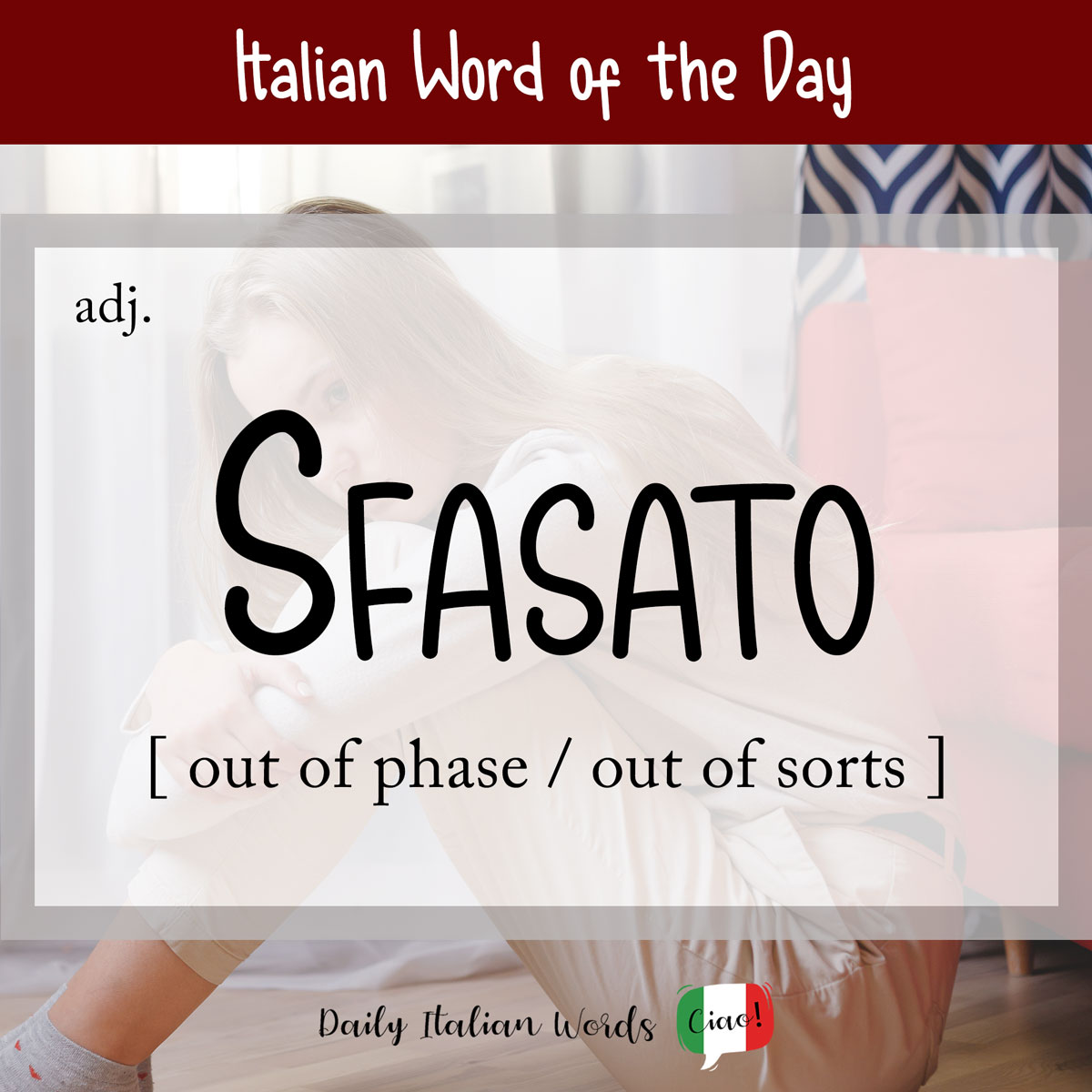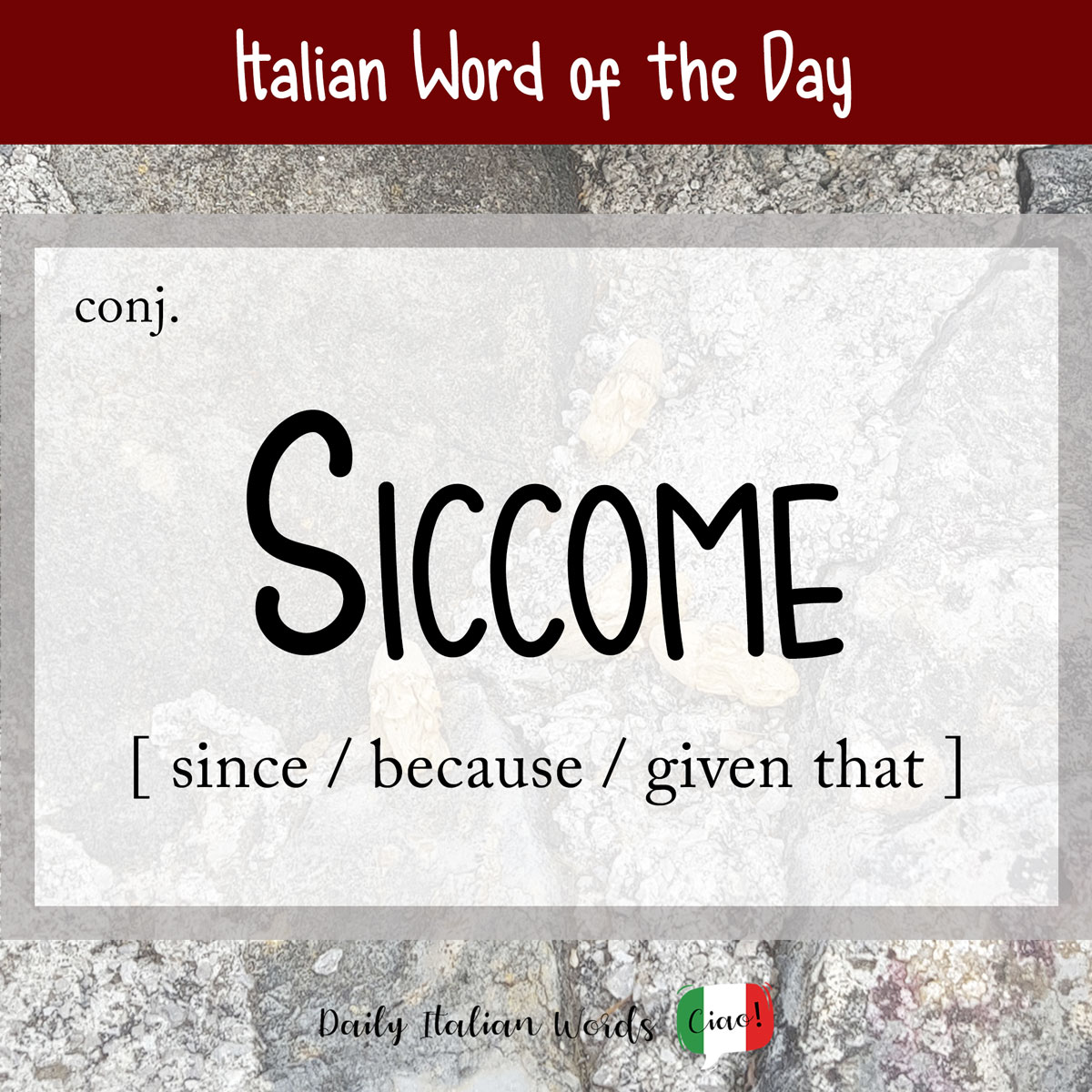Italian Word of the Day: Sfasato (out of phase / out of sorts)
The adjective sfasato in Italian, which derives from the verb sfasare (to dephase), is used in technical terms to mean out of phase mainly in reference to motors and electrical currents. Learn with our video What should be of interest to most learners of Italian isn’t so much the technical but rather the figurative meaning …






